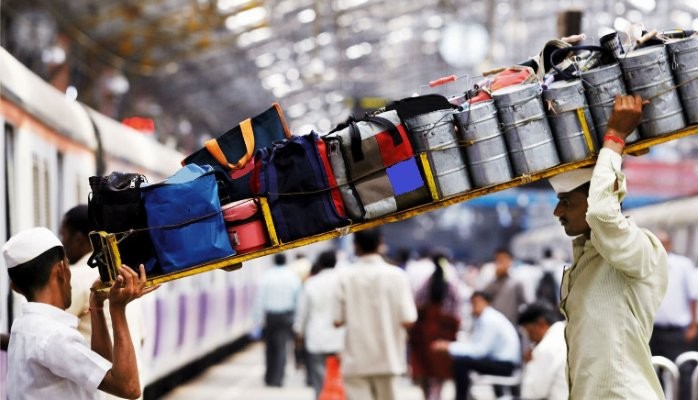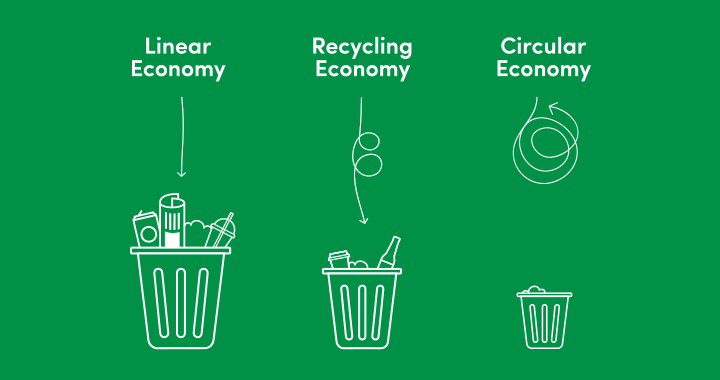Earth Hour: What You Need to Know
- Recube Circular Solutions

- Mar 16, 2020
- 4 min read
Updated: Mar 17, 2020
Did you know that every year we dump a massive 2.12 billion tons of "waste"?
If all this waste was put on trucks they would go around the world 24 times. This stunning amount of waste is partly because 99 percent of the stuff we buy is disposed within 6 months. We buy about 1,000,000 plastic bottles per minute in total. That means we send over 50 billion bottles to landfill every year!
Did you know that just 14% of global plastic packaging is recycled? All the rest, worth $80-120 billion per year, is lost after single use. And nearly a third of nearly all plastic packaging leaks into ecosystems like the ocean where it can stay around for 100’s of years.
This means that by 2050 there could be more plastic than fish in the ocean.
Does it matter whether that plastic that went into the ocean was compostable, or made of a plant, compared to oil?
Does it break down faster in the ocean compared to oil based plastics?
The answer is no!
Do you ever wonder why are all these things becoming a problem now? Why didn't our ancestors face these issues?
What if I were to tell you that the concept of waste is new. It never existed earlier.
This concept of "waste" was started in the early 1950's. Thus, began the era of linear economy - "Make, Use & Dispose". Unknowingly, Our ancestors were living a waste free lifestyle. They were living in a circular economy even before it was coined. Take examples of the Milkmen which worked globally. Our milk was hand delivered in glass bottles everyday. Only if we returned it the next day, would we get a new one. The "used" glass bottles were taken back and not disposed. They were cleaned, sterilised and delivered with milk again the next day. Hence, no waste generated!
Whereas nowadays, we get our milk in plastic pouches which may or may not be compostable/recyclable. Amul, a well known dairy manufacturer in India, sells over 26 million pouches and approximately 1.5-1.6 million tetra packs every day. This is equivalent to 1200 tonnes of waste generated in each metropolitan city!
Another notable mention, The everlasting Dabbawalas of Bombay! The almost 130 year old service has been an outstanding example for the new hyper local delivery market. Various studies, including Harvard and Whartons couldn't decode the exemplary display of swift management. The concept is a complete opposite of the western culture. It’s a homemade lunch, delivered to office workers who can’t go home for their midday meal. Putting it into numbers, they serve over 500,000 people in 2 hours. Keeping their speed aside, the vital cog of this system revolves around a reusable tiffin container. All the lunches are delivered in metal containers, hence no waste generated!
Needless to mention the waste generated by growing food-tech/hyper local companies like Zomato/Swiggy/Uber Eats. It's not their fault but the waste count is too high to be ignored. 1.5MN single use packaged items delivered through on of these applications is too much to fathom.
The most common reaction of people is to blame plastic or companies. The entire plot throughout has been on the system and mindset. Earlier generations had a system in place. The milkman model, clear system of reusing and washing each items. Similarly, the dabbawalas too have a system in place. The key is in reusing and nothing else. This requires a behavioural change more than anything.
Blaming plastic is futile as it is a very important material used in most of our day to day appliances. It is impossible to remove plastics from everywhere, and we should not! It is not a bad source or a waste generator. It is the way we use it which causes the waste. It is all about innovating the way we produce, use and recover plastics.
We know it is possible, but it is not about another new improved type of plastic alternative, it is about driving a system that works.
Our new world
Living in a new world where the word waste is discontinued. A world where everything is reused and nothing goes away. There is no such things as “away”, when we throw something away it must go somewhere. Unlike the old world, where away meant the oceans, From now, it will mean that either it is recycled/washed for a reuse.
A world full of systems. Imagine, next time you order something online, it comes in a reusable container which you have paid a deposit for, the moment you are done using it, you can arrange for a pick up or wait for the next time you order something so you could return it or deposit it at some place. We could save 18MN single used items like that. Similarly for your grocery, dairy products, cosmetics and what not. We at Recube Circular Solutions are running pilots like these through one of our brands called Cupable in Mumbai.
The key is to design a future world we want to live in. All this can only happen through changing ourselves and changing the way we consume. Let's design change for the new world!













Comments